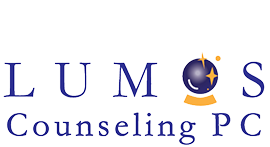Childbirth is undoubtedly a life-changing event for both a mother and her family. And while it may be one of the most monumental and exciting times in a woman’s life, many women struggle with the perils of postpartum depression.

When left untreated, postpartum depression in women can progress and lead to serious complications for both the mother and her child. Postpartum depression counseling provides support, education, and healing for struggling mothers. Let’s get into what you need to know.
How Many Women Get Postpartum Depression?
Research shows that 1 in 7 women experience postpartum depression following the birth of a child. Amid highlight reels on social media, are you wondering how many women suffer from postpartum depression around you?
As it turns out, this condition doesn’t discriminate against whom it affects. There is a misconception that postpartum depression occurs in unintentional pregnancies, and some people may wonder why do women get postpartum depression if the child was planned and wanted.
Regardless of the circumstances of one’s pregnancy, particular risk factors may increase one’s vulnerability to depression. These risk factors include:
- Hormonal changes after childbirth
- Preexisting history of mood or anxiety disorders
- Family history of depression
- Having a baby with colic, special needs, or other medical complications
- First-time motherhood, very young motherhood, older motherhood
- Financial concerns
- Employment stressors
- Isolation and lack of social support
You’re not alone in your struggles, and postpartum depression counseling provides a safe and supportive environment for navigating this tremendous life transition.
How To Support Someone With Postpartum Depression
Are you a loved one and wondering how to support postpartum depression? It’s important to note that the prevention and treatment of postpartum depression often starts directly in the home. Partners, family members, and friends should check in with new mothers regularly. Women should feel safe and encouraged to share their struggles.
That said, postpartum depression and counseling often go hand-in-hand. New mothers often feel profound guilt and shame over their emotions. They may feel like they’re supposed to have everything under control, and they may fear that their depression indicates that they are a bad mother. Counseling helps untangle some of these painful experiences. It allows mothers to explore their new realities without judgment.
The detection, prevention, and treatment of postpartum depression might not always be an obvious process. That’s because mothers may conceal their feelings. They may move into a “super-mom” mode to appear as if everything is fine.
Support requires understanding the nuances of postpartum depression and counseling. Loved ones can help mothers by offering cleaning, cooking, or babysitting services. They can encourage the mother’s self-care and provide relief if she becomes overwhelmed. Finally, they can encourage mothers to reach out for postpartum depression support via talking to their primary care physicians, reaching out to a therapist, or attending a support group.
What To Expect In Postpartum Depression Counseling
There are both medication and non-medication treatments for postpartum depression options. Your primary care physician or psychiatrist can explore viable medication options if needed. That said, talk therapy is one of the best treatment options for postpartum depression.
Postpartum depression counseling usually starts with a thorough biopsychosocial assessment. You and your therapist will review your mental health history, and you will be asked about your current postpartum symptoms.
Postpartum depression counseling may include working on some or all of the following goals:
- Reducing depressive symptoms
- Improving self-esteem and sense of competence in parenting
- Building your support system
- Complying with medication and other self-care strategies
- Increasing marital satisfaction
- Finding resolution with finances, work, or interpersonal relationships
Getting the Postpartum Depression Counseling You Need
You don’t have to struggle with postpartum depression alone. Parenting is hard, but postpartum depression counseling can greatly boost your mental health during this time.
At Lumos Counseling PC, we can provide you with the compassion, guidance, and strength you need during this time. Contact us today to get started.

